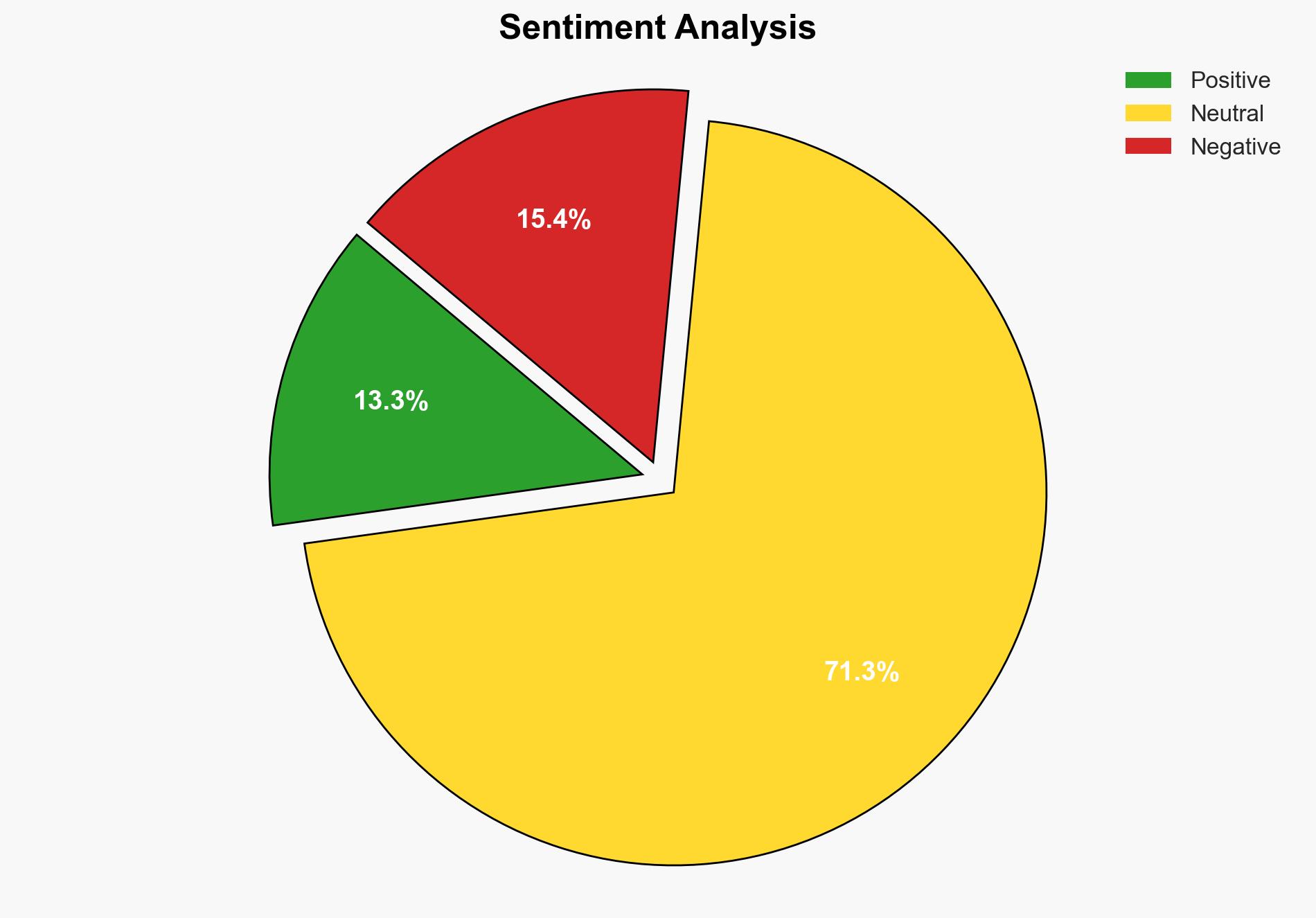The Arab plan for Gaza has two problems Israel and the PA – Al Jazeera English
Published on: 2025-03-16
Intelligence Report: The Arab Plan for Gaza – Challenges with Israel and the PA
1. BLUF (Bottom Line Up Front)
The Arab plan for Gaza faces significant challenges due to Israel’s strategic opposition and the Palestinian Authority’s (PA) internal weaknesses. The plan, which aims to address humanitarian needs and promote Palestinian unity, is hindered by Israel’s resistance to PA involvement and the PA’s declining legitimacy. Without addressing these issues, the plan is unlikely to succeed in its current form.
2. Detailed Analysis
The following structured analytic techniques have been applied for this analysis:
General Analysis
The Arab plan for Gaza is a comprehensive initiative proposed by Egypt and supported by Arab states, the Organisation of Islamic Cooperation, and European nations. It seeks to reconstruct and administer Gaza through a local steering committee of technocrats, transitioning control to the PA. However, Israel’s Prime Minister, Benjamin Netanyahu, opposes PA involvement, viewing it as a threat to Israeli strategic interests and a potential step towards Palestinian statehood. Meanwhile, the PA, under Mahmoud Abbas, suffers from a lack of political relevance and legitimacy, exacerbated by its perceived collaboration with Israel and failure to hold elections.
3. Implications and Strategic Risks
The primary risks include continued regional instability and the potential for renewed conflict in Gaza. Israel’s obstructionism, through bureaucratic hurdles and military escalation, poses a significant barrier to the plan’s implementation. The PA’s internal crisis and lack of authority further undermine the plan’s viability. These factors contribute to a geopolitical vacuum that could be exploited by opposition factions, increasing the risk of ethnic cleansing and long-term deprivation in Gaza.
4. Recommendations and Outlook
Recommendations:
- Engage in diplomatic efforts to persuade Israel to accept PA involvement in Gaza, leveraging international influence, particularly from the United States.
- Encourage the PA to undertake political reforms, including holding elections, to restore legitimacy and authority.
- Consider alternative governance structures for Gaza that involve broader Palestinian representation and international oversight.
Outlook:
Best-case scenario: Successful diplomatic negotiations lead to Israeli acceptance of the PA’s role, enabling the plan’s implementation and fostering Palestinian unity.
Worst-case scenario: Continued Israeli resistance and PA ineffectiveness result in the plan’s failure, leading to further conflict and humanitarian crises in Gaza.
Most likely outcome: Partial implementation of the plan with ongoing challenges, necessitating continued international intervention and support.
5. Key Individuals and Entities
The report mentions significant individuals and organizations:
- Benjamin Netanyahu
- Mahmoud Abbas
- Arab states
- Organisation of Islamic Cooperation
- European nations




